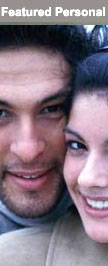
  
|
 Polite objection Polite objectionIf a museum or a university abuses our heritage and displays our stolen artifacts, what are we supposed to do? By Mohammad Ala February 24, 2003 The Iranian Once again our identity and intensions have come into question. This time in an article by Guive Mirfendereski who wrote in Iranian.com. [The last stand of all things Persian] Because of the nature of this contention, many individuals have voiced their opinions and criticized the author. However, people such as Mr. Mirfendereski do not upset me, because I judge individuals over time in order to ascertain their intentions. Indeed I found it to be good news for Iranians that an international lawyer visited the Persian Gulf site and took time to write about it. Mr. Mirfendereski has continuously argued that Iranians cannot organize and work together. However, this site and other like sites which Iranians have created should prove to him that Iranians can organize and defend their identity. Iranians will not keep silent anymore. The Persian Gulf Task Force members are volunteers who take time away from their busy schedules to defend a historic name, which has come under attack, more so after the 1979 Iranian revolution. I do not dispute that there are abusers who are selling their souls for money, or as Mr. Mirfendereski put it, to gain business. My introduction to the author was almost five years ago when he replied to one of my articles by saying, "You cannot trust an Iranian." I wrote back to him and invited him to provide even one example, which he never did. Since then, I have attended two of his speeches where he always advised Iranians to forget about their historical legacy. We have no knowledge of what took place when he lived in Iran which made him angry with us. We are inviting Mr. Mirfendereski to forget about the past and to help our community because of his vast knowledge about international law, particularly that of the Middle East. He was asked to write an article about the Persian Gulf, but he wanted to be paid on his own terms. It is interesting how he takes time to write about the Persian Gulf mentioning unidentified friends. None of the Persian Gulf members is anonymous or uses different names to cover their identity. If a museum or a university abuses our heritage and displays our stolen artifacts, what are we supposed to do? Our approach has been that we politely request that they cease doing so. Although we have created an abuser list, it takes, on the average, more than ten times to write to an abuser before the abuser is added to the list. The Persian Gulf taskforce members are proud of their heritage and intend to protect it. The members are happy to note that in a short time many people have visited the site, which is operating on a shoestring budget in comparison to countries or organizations which are spending millions of dollars to display Iranian stolen artifacts, or to change the historical name of the Persian Gulf to "The Gulf," or "Arabian Gulf." There have been many attempts to create a hostile environment in the Persian Gulf region by selling arms and keeping oil and gas prices depressed. We will not permit our history and our national interest to be attacked nor will we allow our people to be blamed for the problems which are caused by special interest groups or countries who try to deny Iranian contributions to the world. Author Mohammad Ala is founder and Board Member of the Persian Gulf Task Force. Dr. Ala is Professor of Production and Operations Management and Director of Productivity Center at California State University, Los Angeles. More info here. * Printer friendly Does this article have spelling or other mistakes? Tell me to fix it.
|
|
Web design by Bcubed
Internet server Global Publishing Group






























